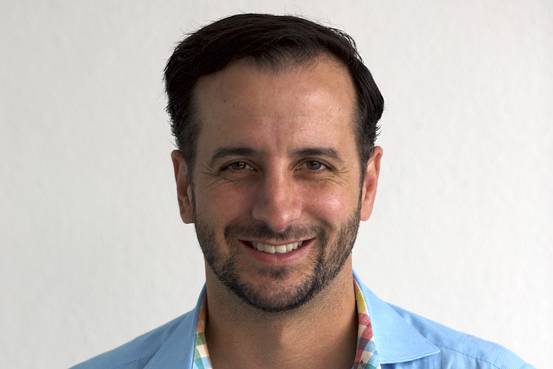For years, Chris Farmer worked as a venture partner at General Catalyst Partners, helping develop its then-nascent seed-investing program while simultaneously working on a big idea: a database that could help screen engineering talent.
Today, that idea forms the basis of SignalFire, a San Francisco-based investment firm that Farmer, who is its sole general partner, calls the “most quantitative fund in the world.” He says to “think of us as the world’s most elite angel group, with a central institutional fund, built on top of a mini proprietary Google.”
It all sounds pretty audacious, of course, but there’s some “there” there, as we saw first-hand during a demonstration last week.
According to Farmer, SignalFire’s platform, Beacon, tracks more than half a trillion data points that it collects from two million data sources, from patents to academics publications to open source contributions to financial filings.
As a result, SignalFire is able to keep close tabs on the comings and goings of millions of engineers around the globe. And that’s just one piece of the picture. SignalFire also invests heavily in unstructured data, including raw consumer transactions that allow Beacon to see where consumers are spending their time and money — and which companies and sectors are growing or not.
Says Farmer of the platform, which has been six years in the making altogether: “Because these are unstructured data sources, the challenge is to de-duplicate things, normalize them, separate out names that are exactly the same, connect handles to people . . . we’ve made everything auditable down to every detail. We’ve been synthesizing the dashboards that the management would want to see of every startup.”
The assemblage was enough to convince SignalFire’s anchor investor, Horsley Bridge, a highly regarded San Francisco fund of funds firm. It signed up for “half the fund in 36 hours” from its launch, says Farmer. (Horsley Bridge further sang SignalFire’s praises to the Wall Street Journal recently, which is unusual for the typically private firm.)
SignalFire has also enlisted 50 other limited partners in the tech-ecosystem who have open access to the platform and in exchange serve as on-demand advisors to its portfolio companies.
Among the big wheels involved are Alt School founder and CEO Max Ventilla; Pinterest’s general manager of monetization, Tim Kendall; Slack founder and CEO Stewart Butterfield; and Factual founder and CEO Gil Elbaz.
Another investor-advisor, Code.org cofounder Ali Partovi, calls Beacon a “game-changer for assessing tech investments.” He says he’d “compare it to GPS navigation. While there’s no substitute for using your own sense of direction, it’s indispensable, especially when you venture into new areas.”
There’s “no VC anywhere that has close to this fire power,” insists Farmer.
One question is what Farmer will do with all of it. Last year, SignalFire closed a $53 million fund, which it has used to back eight companies so far. Among those bets are the behavior feedback platform ClassDojo; a company called SmartSpot that makes a smart mirror for gyms; Frame.io, a platform for privately uploading, reviewing, and sharing video with others; and MileZero, a company that’s building a last-mile delivery logistics cloud to help traditional retailers and newer startups compete with the likes of e-commerce giants like Amazon.
Yet one senses that something bigger is in the works. In addition to all its data, SignalFire employs 13 highly accomplished people, most of whom are presumably expensive to employ, including Yujin Chung, a managing director and SignalFire’s head of platform. Chung recently joined Farmer after spending five years as a partner at Andreessen Horowitz, but he’d actually helped Farmer begin to develop Beacon many years ago as a researcher. (You can click here to read about their other colleagues, all of whom will receive a percentage of the firm’s profits, says Farmer.)
Asked about plans for a larger fund, Farmer declines to discuss the future in much specificity except to say that, “We’ll probably increase the seed fund some, because we’ve been able to lead the deals [we’ve done] and valuations are high, so our portfolio is more concentrated than we’d modeled.”
That’s assuming that SignalFire can do what Farmer says it can. For all the data in the world, no one yet knows whether it can predict future startup success.
Could data have suggested that Travis Kalanick, a UCLA-educated entrepreneur with middling success would ultimately lead one of the most valuable private companies in the world? Could it have predicted that Farmer, who studied international relations at Tufts, would become a venture capitalist?
Farmer is used to skeptics. In fact, he suggests that disbelief works to his advantage.
Asked exactly how he intends to shake up the investing landscape, Farmer peers into his laptop, real-time data flickering across its screen.
“Quietly?” he says with laugh. “Like boiling frogs?”
